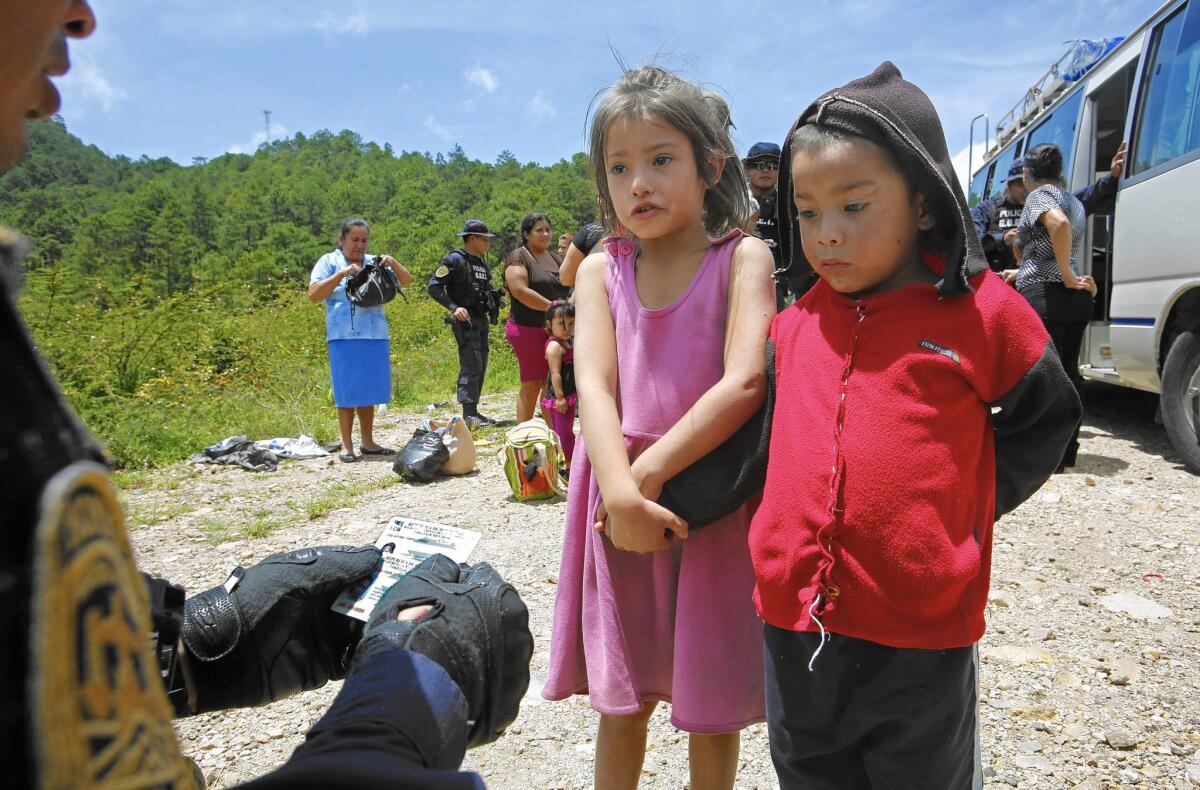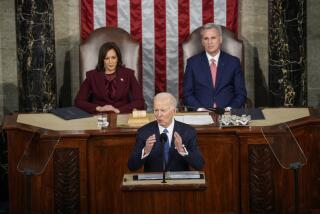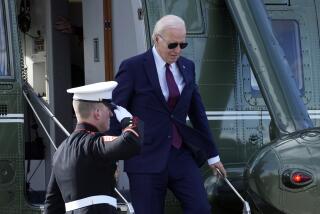With immigration action, Obama charts a new path forward

With a border crisis swirling and a fight with Congress brewing, a group of leading immigration activists expected that a last-minute huddle with top officials at the White House in June would bring more bad news.
But instead of a confrontation, they got a surprise guest bearing an unexpected announcement. President Obama dropped by to tell the activists he was on his way to the Rose Garden to declare that he would use executive authority to ease the swell of deportations under his watch. He said he had no choice, according to people in the room. Negotiations with House Republicans were dead. He’d had enough.
“The dude’s different,” Frank Sharry, executive director of the advocacy group America’s Voice, remembers thinking. “This guy is looking for a fight, looking to punch someone in the face and punch him hard.”
The moment marked a turnaround for a president who for months had been deeply reluctant to do what he was now promising. He had argued he didn’t have the power without Congress passing a law, and he’d chastised advocates for not keeping pressure on his Republican opponents. But right then, he wasn’t equivocating or making vague promises.
As Sharry put it: “He’s going to war.”
Obama’s statement in the Rose Garden that summer day was a pivot in a months-long course that culminated this week in his broad and controversial plan to release as many as 5 million immigrants from the threat of deportation.
Along the way, Obama reversed himself, set ambitious goals, stalled out, took a beating from opponents and quarreled with allies, all while staring down a potentially devastating failure on the chief domestic goal of his second term.
The rocky road, as described by administration officials, lawmakers and outside advocates, reveals a White House that struggled to commit to its choice — stumbling in avoidable political potholes and debating its plan down to the final weeks.
‘Deporter in chief’
Springtime had been a period of intense pressure on the White House. Deportations under Obama’s tenure passed 2 million, splitting families and infuriating reform advocates. A bipartisan immigration overhaul had been stalled in the House for nearly a year. The well-organized and restless immigrant rights community was starting to turn on the president.
Janet Murguía, president of the National Council of La Raza, broke the dam. In a speech, she labeled Obama the “deporter in chief,” opening a surge of criticism from allies, including the Congressional Hispanic Caucus, which was on the verge of taking the drastic step of condemning Obama’s policies on the House floor.
Just before the caucus vote, the president hastily called to the White House three leading members — Reps. Ruben Hinojosa of Texas, Luis V. Gutierrez of Illinois and House Democratic Caucus Chairman Xavier Becerra of Los Angeles.
The meeting was unlike others, Gutierrez says now. The president was warm, he listened, and he came with a new promise: He was ordering his Homeland Security chief to review deportation policies.
The offer remained vague. It wasn’t clear the review would consider a broader plan that could exempt millions from deportation, as the leaders wanted, or whether Obama was merely agreeing to reconsider smaller enforcement measures. Still, Gutierrez says, it was different.
“We weren’t arguing whether he had the authority anymore,” Gutierrez said. “He wasn’t telling us, ‘Guys, I don’t have this power.’”
Seeking consensus
Obama’s relationship with immigration activists is uneven. He broke a promise to throw his weight behind a comprehensive overhaul bill and pushed immigration to the back burner for most of his first term. Six months before his reelection, he announced a deferred deportation program for the so-called Dreamers, young immigrants brought to the country illegally as minors. Although he’d won widespread support among Latino voters, some thought he took them for granted and did not have a deep understanding of the community.
For some advocates, that disconnect was clear when the president pulled them into the Roosevelt Room in March to try to persuade them to stop the friendly fire. The mood was more antagonistic than the meeting with Congressional Hispanic Caucus members had been the night before.
“I don’t need to hear any more stories,” a frustrated Obama told the group. The president said he didn’t want to listen to more heartbreaking tales of family separation. “I get it,” he said, according to four people in the room.
He didn’t need political advice either, he added. “My name is Barack Hussein Obama. I’ve been elected president of the United States twice. I think I know a thing or two about politics,” he said.
What he wanted was for them to agree on a “unity of purpose” — or at least a unified message to the media.
At the end of the meeting, Obama asked what the news media should be told. There was no consensus, the advocate recalled.
Some left so discouraged, they said, that they almost overlooked what proved to be Obama’s more important message: Homeland Security Secretary Jeh Johnson would conduct a review. Obama had opened the door to using his executive authority — even if just a crack.
Executive action
Obama had said no to the notion of executive action repeatedly.
After winning a second term with the help of Latino voters, Obama made a comprehensive immigration overhaul his top legislative priority. He believed, like many, that the political climate was finally right. He did not want a threat to act on his own — a move certain to outrage Republicans — to undermine talks.
But White House officials privately wondered also whether there were legal problems. The more the president widened the circle of people protected from deportation under his own authority, the shakier the legal ground got, they said. The president, a constitutional lawyer, wasn’t interested in forging new legal territory, they said; he was focused on sticking to precedent.
When precisely Obama embraced broad executive action is unclear, but advocates and lawmakers say they believe Johnson played a crucial role.
Obama named Johnson the point man in dealings with rights groups and Congress and made clear that the Homeland Security secretary had his trust.
Johnson, a lawyer, quickly won over advocates. He appeared more open to the legal possibilities and had more credibility with the Latino community than his predecessor, Janet Napolitano. Johnson brought in new aides eager to make changes and held long listening sessions with politicians, advocates and front-line immigration officers.
“Because he is also a lawyer, and I think much more concerned about the due process and a lot of the civil rights violations, he was just much more open,” said Marielena Hincapie, executive director of the National Immigration Law Center. “And one thing we knew was that he had the president’s ear.”
Advocates gave him a list of recommendations and shifted their focus from rallies and speeches to persuading the president on the legal arguments.
But within the White House, legal precedent was only one hang-up.
‘A narrow path’
The president was holding out hope that House Republicans would pass legislation — or some version of it.
In quiet talks with House Speaker John A. Boehner’s office, the White House discussed timing scenarios for possibly passing the bill in pieces. In May, Obama agreed to give the Ohio Republican more time and delayed the release of Johnson’s review of deportation policies.
A month later, Obama invited Boehner to a golf event at the White House — an invitation that played on one of their common interests.
Two unfolding crises had complicated the prospects for immigration reform: a surge of unaccompanied children arriving at the border from Central America and the stunning defeat of Boehner’s No. 2, Majority Leader Eric Cantor of Virginia, ousted in the primary election after his opponent attacked him for even considering legalizing some immigrants. Cantor’s loss spooked Republicans away from the issue entirely.
Boehner told Obama how difficult it would be for the House to consider legislation.
“I always said it was a narrow path,” Boehner said, according to those familiar with the conversation. “It got really, really narrow.”
Days later, Obama announced he would take executive action by “the end of summer.” Once so hungry for a rare legislative accomplishment, Obama finally had become one of the last to conclude that the possibility of a deal was over.
No holding back
As Labor Day approached, so did Obama’s deadline, as well as the final push for moderate Democrats fighting for their careers in tough Senate races.
Observers had scratched their heads over Obama’s choice of a cutoff date, and some considered it political malpractice to commit to making such a potentially explosive announcement two months before an election. White House officials say they were focused not on politics, but on how long it would take to set up the program.
In August, senators began to make their displeasure known, and Obama called stakeholders to gauge their reaction to another delay. He told one lawmaker he was worried Democratic senators would come out against the plan, sinking its chances.
The president delayed a second time, but was less specific on his new timeline. As the election season turned ugly for Democrats, aides began planning for a lame-duck session and a potential new Congress controlled by Republicans.
Officials discussed whether immediate action on immigration would blow up hopes for working with a Republican majority in the new year. Or should Obama be more conciliatory, as a sign to the GOP and voters that the message of the election was received? One official worried openly to an advocate about trying to find the right political balance — a decision big enough to please the Latino community but not so big it would prompt Republicans to try to impeach the president.
The quest for both balance and the right details continued until the week before the announcement, officials said. Advocates say they brought policy changes to the White House as recently as two weeks ago — the age requirement for those considered Dreamers, for example. The length of time parents of citizens had to be in the country to qualify for protection appeared to shift from 10 to five years only in the last couple of weeks, said one advocate.
A White House official says the president and his advisors settled on going ahead now because they believed midterm voters asked for results from Washington.
“What we decided we could not do was hold back solving a big problem and not fulfill what the president said he was going to do,” the official said.
That attitude was clear almost immediately after the election. At the first meeting with congressional leaders, Boehner again told the president and the other leaders he would like to take up immigration legislation.
“I’m trying to do this the right way,” he told the group at the White House meeting.
An incredulous Vice President Joe Biden asked the speaker how much more time he needed. Before Boehner could answer, the president interjected.
You’ve had enough time, the president said.
kathleen.hennessey@latimes.com
Michael A. Memoli in the Washington bureau contributed to this report.
More to Read
Start your day right
Sign up for Essential California for news, features and recommendations from the L.A. Times and beyond in your inbox six days a week.
You may occasionally receive promotional content from the Los Angeles Times.









